|
9/5/2022 0 Comments Finding the Wind AgainFrom time to time, on no fixed schedule, I drop a post into Facebook that starts like this: A little [whatever day it is] craft talk, if you'll indulge me ... I then hold forth on whatever's in my head, fixating on various aspects of the writing life (structure, pacing, idea management, etc.). I'm nobody's paragon of craft discipline, that much is certain. With regard to art, I am, for better or worse, a do-it type rather than a talk-about-it type. And because I didn't come from the academy or any kind of writing program—unless you count the immersive education of journalism—I'm not really comfortable with the conversations anyway. They too quickly expose the gaps I've papered over with intuition and practice. But I do have my moments. This morning brought one of them. I talked about how an idea I got charged up about a few weeks ago stalled out on me fewer than 20,000 words in ... and how I resuscitated it. Let's go deeper ... The idea is the thing Here's how it works for me, with the acknowledgment that everything herein has a disclaimer of your mileage may vary:
The idea that recently stalled on me had a fairly quick gestation. I'd say within a couple of weeks of thinking about it a lot, I decided to start writing (having a deadline was no small factor, I'd reckon). The decision to write is the crucial one, because that locks me into a commitment I'm not quick to make (my output over the past 14 years notwithstanding). One of my favorite quotes comes from Stephen King, who likened the writing of a novel to sailing a bathtub across the ocean. The decision to start writing puts me in the bathtub, and between you and me, I'd rather be on the couch. Experience, in my, uh, experience, is a double-edged sword. Writing a novel is much harder now than it was when I wrote the first one. Harder mentally, harder emotionally, harder physically (not that I'm unloading shipping vessels here or anything, but yer boy is older than he used to be, and things like eyes and fingers and butt cheeks aren't as hardy as they once were). All of that difficulty is offset, somewhat, by a greater ability to differentiate between a garden-variety idea and one that has the legs (or sea legs, if we're to stick to the sailing metaphor) to get from here to there. The stall-outs still happen, though. Sometimes I'm able to salvage them into a short story. Sometimes they just sit forevermore, dead husks taking up space on my hard drive. So there's that. When I sit down to work, I do have more confidence now that I'll be able to cross the ocean in my bathtub than I did years earlier on other projects. I don't have a guarantee—because of how I work, which some writers call pantsing, I'm never entirely sure where I'm headed—but I have the experience of seeing these ideas through, which grants me some confidence that I'll reach the other shore. But still: Bathtub. Ocean. And sometimes the wind leaves those sails without much warning. The stalling out I discovered I was adrift at about the 17,000-word mark. On the face of it, that's not a good sign. At that point, you're barely coming out of the early part of a novel-length work into the murky middle, where you have every right to expect that you'll feel lost (particularly if you're a pantser) while you're drafting the thing. I was scared—all that work, jeopardized—but not panicked. I set my work down and I made myself quiet. Over the next couple of weeks, I considered many things:
These thoughts began competing with each other, to the point that a haze formed and settled on my head and blocked my vision. In response to that, I got quieter. I focused harder. I listened more intently to what my inner assessments were trying to tell me. And then the haze lifted. Back in the bathtub Over the past four or five days, I've revisited the manuscript in progress. I've reread every word, from number one to number 17,751. I've recast many of them. And I've come to a few conclusions:
So onward we go. The sails are up. The knots are tightened. I might run the Jolly Roger up the mast, just to be a badass about it. In the meantime, there's a lot of open water ahead, but I have faith that the shore waits for me out there somewhere.
0 Comments
8/14/2022 0 Comments Small. Appreciative.
Life has some funny cycles. As I write this, I'm just a handful of hours home from a couple of days in Great Falls, that visit coming on the heels of another Great Falls trip the previous week. Before that, I think the last time I was in Great Falls other than just passing through was ... 2010? 2011? A long time ago. I hope this means I'll be going back sooner rather than later. I like that town.
I was there to take part in a panel discussion of Montana authors, sponsored by the Great Falls Public Library as part of the Big River Ruckus festival. It was a blistering-hot morning, and my planet-sized melon sizzled. As is often the case for literary events, we didn't have a big crowd (I believe the applicable adjectives are "small" and "appreciative"), but we had good times in abundance. I joined poet Dave Caserio (a Billings denizen, like me) and writer Kristen Inbody, and we had a rollicking good time talking about writing in the West, ideas, how place figures into our writing, and much more.
Whenever I do an event, I'm put in mind of a line from a Pernice Brothers song: It doesn't matter if the crowd is thin / we sing to six the way we sing to ten ...
It's a funny line, of course, but the sentiment is dead-on. I've seen everything there is to see at readings, book signings, and the like: small gatherings, no gatherings, full houses, whatever. Whatever you get, you deliver as best you can to whoever was kind enough to show up. It's a charming business in that way. Every hand that's there to shake—or the only hand that's there to shake—is another chance to make a connection. And connections are everything. One person showed up? Great! Take that person out for dinner or a drink. The whole town showed up? Fantastic! Now you've got a party.
Love is love, and we love the stage ...
Before heading home Sunday, I drove out northwest of Great Falls to see the dairy farm my father grew up on. It was only the third time I've been there, and the second was just a drive-by, but I remembered the route just fine. I drove down the long driveway to where the house is, but nobody came out, and I wasn't about to go knocking on doors, so I took a quick look, then slipped out of there quietly.
Here's a nice shot from atop the bench, about a mile and a half from the farmhouse. Sorry for the telephone pole bisecting Square Butte.
When I talk about writing and where it comes from, as I did during our discussion Saturday, I'm apt to talk about how we are born with stories. We're not blank slates. Going to a place that was formative for my father (in mostly devastating ways, unfortunately) is a good demonstration of what I mean. It allows me to put eyes on his life, to process it, and to make sense of my own. Because of the way his life was shaped by his early experiences, he had a story to transfer to me, one that I would start to carry when I came into the world, along with the one I would live out in my own days. The same is true, of course, with my mother, and her parents, and his parents, and their parents before them, and on and on. The stories are inside us, already coded. We draw them out, interpret them, weave them with imagination and memory (in the case of fiction), give them purpose. It's a beautiful thing. Even when the underlying material is made up of mostly terrible things.
"Before you climb the mountain, first the foothills must appear."
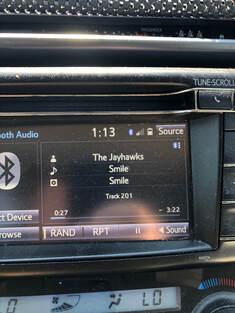
It was a long, hot, empty drive home for Fretless and me. He mostly slept. I mostly sang along with the random shuffle of iTunes, something I can get away with when I'm alone. (I certainly wouldn't subject any human to my singing voice.)
On the final stretch home, I received a particular delight when iTunes served up one of my favorite songs but also one that doesn't often swim to the top of the heap. I suppose most songs remind us of something, someone or some point in time. Certainly, this one does that for me. There's a tinge of melancholy, though, because it's a reminder of a friendship I miss. It's been many years since it went by the wayside, and I've come to embrace something I was told a long time ago when I was seeing a counselor while in the midst of divorce: Some friendships are like cab rides. They have a beginning and an end. Indeed, they do.
Anyway, it was nice to hear the song at that moment, with my head where it was (reeling in other memories), to recall good times with someone who was a good friend, and to put out a silent wish: I hope the good life has found you where you are.
It certainly has found me. Coming home—to Billings, to Elisa, to Spatz the cat—is the best arrival I've ever known. It makes the leaving worthwhile. 7/17/2022 0 Comments On the Struggle I just—and when I say just, I mean less than an hour ago—finished constructing and printing out the interior print file for Elisa's forthcoming novel, All of You. I'm proud for so many reasons: that she's written another banger, that she's making tangible progress toward getting it out there, that I am able to use a skill I've developed to help her. Elisa believes in this novel, and she's reached a juncture in her career where putting it out herself and realizing her own vision for it is of paramount importance to her. And that gets at why I'm most proud: A year ago, she wasn't sure she'd ever be here again. Three years ago, I wasn't sure I would be. Much of the joy of writing and publishing and connecting had been sucked out of it, for both of us, for similar and divergent reasons. And, listen, if you can't find the joy, there's not much reason to keep going. The difficulties are too numerous, the frustrations too pitched, the dead ends too abrupt in the best of circumstances. Joy, and its cousins purpose and determination, helps carry you through all of that. I won't speak to how Elisa lost joy and found it again; that's her story to tell in her way. But I can speak to my own journey ... Facebook is a scourge, mostly. But it's also a scourge with features that aren't easily replaceable through other means. I can't call up my nieces and nephews on the daily and ask what's going on their lives—I mean, I could, but they'd quickly tire of it, and I'm just not constituted to operate that way—but I can see every important turn on Facebook. I can be conversant about what they're doing. I can feel connected to them. Similarly, there's nothing quite like Facebook's Memories feature to remind you of the way things once were. Sometimes, it brings into sharp relief just how different your current circumstances are. Elisa and I get this a lot, especially this time of year, which synchs up with the first summer of our courtship—The Magical Summer of 2015, as we like to call it. And so we sit at the breakfast table, older, paunchier, scuffling harder to pay bills, not knowing when or where our next vacation will be, and we sigh contentedly at the memories of a time when royalties were flush, there were no jobs to go to, and we could just disappear without worrying where the next check was coming from. And we say "gee, wouldn't it be nice to experience that again?" and we agree that it would be, but we're not really thinking about how much richer life has become in other ways, lost as we are in the haze of memory. We're not thinking about the house we bought together, the pets we love, the history we're building. We're thinking about being financially carefree and unbound by anything other than our imaginations. They're pretty sweet, those memories ... If you've read the past several paragraphs and thought, OK, great, Craig, but that was a bunch of sentimental claptrap about life and leisure and I'm here for the struggle with art, let me say this: I find it impossible to separate the two. Those memories from 2015 beguile us, in part, because of what fell out from there: Love and marriage and commitment, yes, but also struggle. We both wrote and published books we loved and believed in, same as we had before, only those subsequent books weren't commercially successful in the same way their predecessors had been. We fought against ourselves to recapture what we thought we'd lost, not really having any idea what it was or why it had seemingly gone sour. We got dumped by our publisher, and while it would be nice to be above it, to greet such news with an attitude of "their loss," the simple fact is that the losses felt very much like ours. It felt like rejection, because it was rejection. It hurt because we are humans, and we bleed when we're cut.
However ... It's important to know that, even as you build yourself up as special, you're not. Rejection isn't your burden alone; everybody grapples with it. A change in trajectory isn't singular failure that's on you; that's life and what happens sometimes when you have the audacity to live it. It took a while to come out of that depressive trough. It took a while to find a new footing. It took a while to want to get in there and slug it out again. For me, the breakthrough came when I realized that my happiest place was inside the work, where it was just me and the stories I'm trying to tell, where the measure of progress is keeping faith with what I'm attempting to do by showing up, every day, and doing a little bit more to realize it. When I rediscovered that, the rest began falling in. The publishing partner with whom I want to bring these stories out, who believes in the work the same way I do. The reconnection with a sense of fulfillment (not necessarily happiness, which is more transient and thus, honestly, less valuable to me). Exterior validations of the work. But always, always, it's the work. I see that in Elisa now, the spark she has rediscovered with this new book. She's fully into her own joyousness, and you can take it from someone who's seen this from her before and worried when it went away for a while: Look out. She's got this. 6/4/2022 0 Comments International Book AwardsAnd sometimes, something you want to see lands in your email box on a Friday evening: And It Will Be a Beautiful Life is the third of my books to be so honored, joining Edward Unspooled (2017) and You, Me, & Mr. Blue Sky (2019), the romcom Elisa and I wrote together.
I've been at this long enough to understand that most awards and citations aren't unassailable vehicles of merit—the vagaries involved are considerable, and to see your work recognized is, in no small measure, a matter of serendipity. But at the same time, it's also validation, and in the long, lonely slog of writing and publishing, that's important. What I like about the International Book Awards is that they're large-scale: a ton of categories, nonfiction and fiction, and a ton of entrants, from large publishers to small presses to authors who independently release their work. The egalitarian nature of the contest appeals to me, and I'm grateful that my book was honored. 5/20/2022 0 Comments History as I Wish I'd Learned It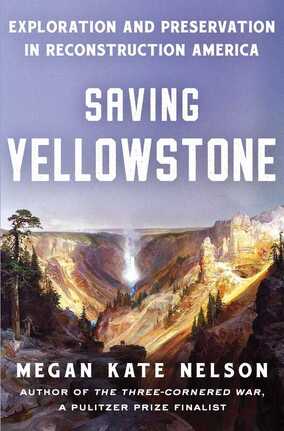 Several months ago, one of my journalism and writing heroes, Tom Zoellner, invited me to review Saving Yellowstone for the Los Angeles Review of Books. I was a bit cowed by the prospect, to be perfectly honest. I don't have any standing, in senses literary or academic, to critique the work of Dr. Megan Kate Nelson, the book's author. I hadn't yet read her previous book, The Three-Cornered War, which had been a Pulitzer finalist. I was, upon first consideration, well out of my depth and not particularly inclined to take on the assignment. And then I reconsidered. If Dr. Nelson's literary ambition is to peel back history and explain it to a general audience—as well seems to be the case—then I'm about as general as they come. I'm curious and informed, I live in the region where the events of Dr. Nelson's book unfolded, and I try to live my ideal that an engaged life and mind require making some inroads into all you don't know (a considerable pile for me) and challenging those things you think you do know (also a considerable pile). In those ways, I was redeemed by reading and reviewing Saving Yellowstone—and by backtracking to read The Three-Cornered War. The review speaks for itself, I think. Beyond the completion of my assignment, the book has stayed with me. I've repeatedly recommended it, in sometimes obnoxious ways (see the tweet below). I've put it in the hands of friends. I've pondered the way Dr. Nelson's presentation of history—as something connected, something that breathes and reverberates—stands at odds with the lessons of the garden-variety public education I received in my Texas suburb, in which events were stand-alones and dates were to be memorized and regurgitated. Dr. Nelson's book details the Hayden expedition into Yellowstone, yes, and the establishment of our first national park, but also so much more, including the influences of capitalism, the literal and figurative erasure of Indigenous peoples, how the grappling with Reconstruction was not just a southern story but also a western one. One of the jarring lessons of the read, for me, was seeing the way the Grant administration's attempt to bring freed slaves into the body politic lay parallel with a policy of dispossession and extermination of Indigenous peoples in the West. The aims of the former policy largely failed; the aims of the latter were vastly realized. The result of both has been lasting inequality. The book is a triumph of dot connecting, of context, of presenting the bigger picture that lies outside conventional framing. It cannot be read without the realization that the fracture points of yesterday linger today. In the reading, I was reminded of something I often impart to editing clients when I sense that their narrative has gone passive (something that is NOT an issue for the history Dr. Nelson illuminates or the way she goes about telling it). The "and then, and then, and then" structure of storytelling will not compel an audience's attention or investment. I mentioned the polished-up version of history I absorbed and spat out for tests in my youth. That's how it was often (not always, but often) presented to me: Here's this. Here's this. Here's another thing. Here's still another. Hey, why is your head down and what's with all the drooling? Dr. Nelson's book, a work of scholarship, clicks along the way good storytelling does. It has sinew and electricity and a heaping measure of "but therefore ..." It moves. It speaks. It is kinetic. You must read this book. Yesterday, I drove from Billings to Livingston to see a lecture by Dr. Nelson and by Dr. Shane Doyle, who detailed the fascinating history of Indigenous peoples in Yellowstone.
Their presentations were sponsored by Elk River Arts & Lectures and the Park County Environmental Council and served as a fundraiser for the All-Nations Teepee Village, an event "to honor and recognize the many Tribal Nations with connections to Yellowstone and highlight the indigeneity of the landscape." To learn more about that effort (and to donate), go here, please. I've been in Montana for a while now--much longer in my heart than in my physical presence—and every day that has included a trip to Livingston can be filed away under the heading of "Best Days." Beers and yuks with the great Scott McMillion (who wrote the quintessential Livingston appreciation). A quick bite and more imbibing with Marc Beaudin. Chatting with Elise Atchison and Max Hjortsberg and Tandy Miles Riddle. Seeing pals on almost every corner. May your life be blessed with interesting travel and good friends. 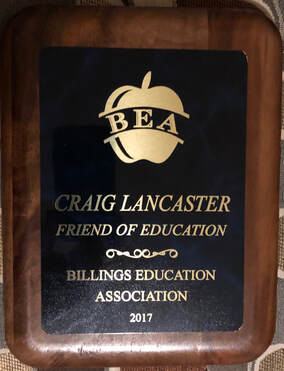 My favorite bauble. My favorite bauble. I've been fortunate enough to have had some terrific honors bestowed upon me. Fifth-grade spelling bee champion. Sixth-grade student council president. I mean, do I have to go on? We're talking biggies here. It was just about this time of year in 2017 that, perhaps, the one that means the most to me came around. The Billings Education Association—the union for public school teachers in the place I call home—honored me as its Friend of Education. It was deeply meaningful to me for several reasons. One, I'm a child of public education (thank you, Birdville Independent School District and Smithfield Elementary, Smithfield Junior High (now middle school) and Richland High School). Two, public school teachers have had a profound effect on me at every stage of life. They've been mentors and influencers and friends. I was born to one. I married one. Three, I truly believe that public education is a compact we must hold with each other, no matter how fraught things get (I'm not terribly optimistic about how things are going in that department, but I still believe in the compact). Public education is the ultimate investment in our future, together. I could go on and on. I have, in fact. Whatever the teachers in my town felt in calling me their friend five years ago, I send it back in triplicate to them. English teachers at West High School here in Billings were instrumental in getting 600 Hours of Edward on the approved curriculum list at the high school level, and for years now, some of them have been teaching it. It blows my mind, still. And the bargain I've made, straight along, is that if you want me to visit the classroom, to talk about writing and creativity and life beyond high school, tell me when and where and I'll be there. The pandemic, as you might imagine, took a bite out of that bargain. And yet, there we were last week, a handful of English classes at West—juniors and seniors—and a creative writing club, and we were working through one of my favorite writing exercises, The Word (I am not its inventor, by the way, just an enthusiastic adopter). Each class, I'd have the kids tell me their name and give me a word. We then ran a random-number generator to choose a single word that the entire class had to use as inspiration for a short story. Writing time: 20 minutes. It's a hell of a thing, I'm sure, to show up one day at school and hear that some dude you've never met before wants you to spend most of a period writing. But these kids did it, and their enthusiasm, generosity, and talent leave me hopeful for their futures and my own. For every period, I wrote alongside them, ending up with nearly 3,000 words of material, by far a busier day than I usually have. I'll spare you the whole passel of short stories (unless you really want to read them), but here's a taste: Lightning When we got the dog—a 48-pound, 40-inch-long, 14-year-old basset hound—I named him Lightning because, among other things, I was into irony. Lightning’s name was Dexter when he was stuffed in a kennel at the humane society, on account of his previous owner, an 84-year-old woman named Mildred, up and died one day and Dexter was found sleeping in the small of the back of her tumbled-over carcass, and Mildred’s kinfolk didn’t want him. And you might say that if a dog has borne a name, any name, for 14 years, he ought to be allowed to keep it for the rest of whatever time he has left. And, OK, that’s a fair point, but Dexter is a crappy name and no more fitting the hound he was than Lightning was. So I changed it. My prerogative. We didn’t get off to a good start, Lightning and me. First night, I put him up on the bed, and he walked around behind my shoulder, I thought he was snuggling in, and he lifted a leg on me. New house, new bed, new people—I guess I can’t blame him, but come on, man. He pooped on the rug the next day—the good rug, that was the problem, not that frayed thing in the den—and I thought, well, Lightning, you ain’t long for us if you don’t straighten up and fly right soon. I needn’t have worried, as it turned out. I’ve come to believe, in the looking back, that the speed of him—opposite the name we’d hung on him—was the secret to his longevity. That dog just wasn’t in a hurry for anything, which kept his heart rate low and his blood moving agreeably. “Lightning, dinner,” we’d say, and we’d wait for the lumbering, this long dog who could have two feet on different sides of a corner, and he’d come into view and he’d eat at a luxurious pace, like a cow working its cud. “Lightning, let’s get in the car!” Same thing. That dog moved in a way that would make a sloth say, “Damn, that’s one slow-moving animal.” Ironic, then, that the event for which he gained his fame around our house, the reason Judy would grip him by those jowls, unbidden, and say, “You’re the best dog ever, yes you are,” was a moment of alacrity. Megan, our youngest, just a baby, crawling for the curb and the traffic beyond, we’re bound up in watching Mitchell show us his batting stance there in the front yard, and she’s nearly to the asphalt, and here’s Lightning, moving at his bah-doop-dee-doo pace and he snags her diaper in his teeth and pulls her back. That’s a good boy. We said goodbye to him last night, the fadeout that we’d seen coming and were still flabbergasted by when it arrived. Lightning, staring up at us, our expectant faces in his, our tears surfacing, and here’s that old floppy-tongued kiss, the one we’d had a thousand times and would never have again, and he’s gone, gone, gone, not so much a flashing discharge of electricity but a shattered star lighting up our days and nights. 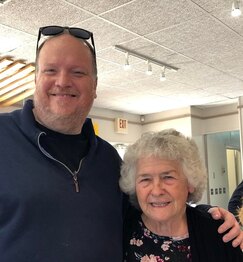 With Hazel Lowrance, my kindergarten teacher (1975-76), in March 2022. With Hazel Lowrance, my kindergarten teacher (1975-76), in March 2022. After writing and sharing—the kids were great about that, too—we talked about what I like so much about this exercise, that in the letters and meaning of a single word, there's a fuse that can be lit and burned down into a burst of creativity. It's one of the most magical things I know of, how you can tap into memory, word association, imagination and pull a story right out of yourself. It's entirely egalitarian. You don't need permission. You don't have to wait for someone to judge you worthy. You just need time and inclination. You need a pencil and a piece of paper and the willingness to get busy. And the thing is, long before I ever thought about these things, long before I ever knew what a writing prompt was, long before I ever imagined trying to build a life around words, I had teachers who pushed me, who had lamplight and were willing to show the way, who truly and honestly believed that each child in their care had purpose and something to offer. On the surface, I don't have much in common with those kids I met last week—I'm older than their parents, in many cases, and from a generation that must seem decrepit and dated to them. And yet, the successors of those teachers I remember with such fondness and admiration are in the classroom now. Still pushing. Still guiding. Still believing. How lucky we are. What a shame it would be if we lost it. 2/23/2022 0 Comments Straight On To StardustHere's a hard life lesson that writing has taught me: patience. It's a quality I don't naturally have in reserve, and that struggle to find it has benefitted and afflicted me in equal measure in what I do, how I relate to people, how opportunities have come to me, and how I've blown things by being too over-eager. Writing, it turns out, doesn't much care whether you're patient or you're not. The actual act of it comes at its own pace, and sometimes you have to be patient in the extraction. You have something out on submission? Wait. You want an agent's attention? Wait. An idea isn't quite working the way you hoped it would? Set it down and wait. You think you don't have time? Sorry. You do. Wait. So let me tell you about Straight On To Stardust and how it came to be whatever it is now ... Back in 2017, I had this idea for a novel I wanted to write: The basic premise—and that's all I ever have at the outset, which often results in a half-baked unfinished thing that validates Stephen King's idea that writing a novel is like trying to sail a bathtub across the ocean—was a guy with his father's lifeless husk in the bed of his pickup, his father's dog in the passenger seat, and a trip from Montana to New Mexico for the burial. What happened from there is ... well, a lot of stuff that I'd rather not say here, because I hope you someday see the play. That's the real story, anyway. I started with an idea for a novel and ended up with a play. That's the arc. But the color and light of the story lie in the turns in between. The novel idea died. As dead as the father in the back of the truck. I didn't get enough of it down to harvest the wreckage for a short story, which sometimes happens. Dead, dead, dead. Doornail. D-E-A-D. So then a lot of stuff happened. I set it down. I worked on something else with my wife, Elisa. I went to a lot of plays, which is just about my favorite thing to do. I saw The Glass Menagerie, and then I read it, and tried to stare deep into the craft of the thing. And after a while I saw a different narrative approach to my dead story about a dead father. I was living in Maine now, and I started to recast the thing, straight dialogue and stage direction. I didn't have the slightest idea what I was doing, and I loved it. That died, too. Or at least went into convalescence. We came back to Montana. I finished a manuscript that had been languishing in Maine, something I felt good about but couldn't summon the energy to attack back there. Those were tough days on the East Coast, where we'd moved with great hope but hadn't found a way to make home. Coming back to Montana unlocked a lot of things. And It Will Be a Beautiful Life, certainly, but also my willingness to pull a half-finished play born of a quarter-finished novel out of the drawer and have another go. This time, I finished it. And my good friends at Yellowstone Repertory Theatre, god bless them, having seen a pandemic wipe out a season, did a table read on Zoom. That was a fun night, and there were many fine things said about my play, and also many on-target comments about how it could be improved. Notable among these was that it felt more like cinema than stagecraft, an assessment echoed by my Tony-winning high school friend, so I, of course, accepted that, even if I wasn't exactly sure how to address it. So ... patience. I put it away and let it be for a while. I pushed down the road on two manuscripts that I hope to finish one day, then started and finished a third. We moved into our second year of being back in Montana. Life opened up. Delta and omicron came crashing in. And then, finally, in January of this year, my wife and I, for her birthday, attended a play for the first time in nearly four years. Christian O'Reilly's Chapatti is a wonder. Two actors. One stage. Nineteen unseen cats. One unseen dog. The vast preponderance of the dialogue directed at the audience. Exposition out the ying-yang. The fourth wall taken down before the first curtain comes up. I loved every blessed word of it. And nestled among all those words were some ideas about what was ailing my play. Earlier this month, I took a mighty swing at it and did a major revision. What happens now? I'm not sure. There's talk of a public table reading. I'm hoping for a production. That would be beyond any dream I had when I began writing it. I sure enough know I'm going to want to write some more plays, if I can find some properly propulsive ideas.
What have I learned? Quite a lot, actually. The most important thing: This doesn't happen without patience. I'm not naturally imbued with it, but man, I do appreciate what comes from being forced to find it. One day, several months ago, I was parsing through my email and came across something sent to me through this very site (a low-traffic way of reaching me, for sure). It was from a man named Howard Marc Chesley, and it was a friendly request that I read his novel Free Marcus Katz!!! and offer an endorsement if I was moved to do so. (A slight deviation before I go on: Requesting endorsements—blurbs—is one of the most humbling things any author goes through. In essence, you're asking for hours of someone's finite life and words that you can then use for marketing purposes. I hate asking, but I love being asked, probably because I know exactly how hard it is to make the request. Still, you have to like what you read enough to attach your name to it, and there have certainly been instances where I've had to apologetically decline. My point being: I very much wanted to grant Howard's request. And I hoped I'd love the book.) Non-spoiler alert: I loved the book. 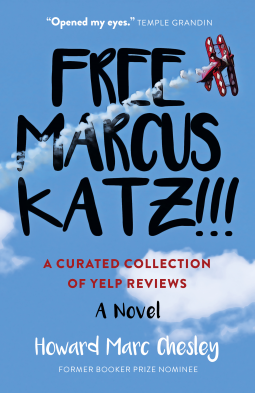 This how I ended up endorsing the book: "Booker Prize nominee Howard Marc Chesley's new novel is a charming, insightful, moving, funny tale. In many respects Marcus' life is quotidian, and in others it's extraordinary. A portrait emerges of a man who wants something more ... and just might get it." But forget what I said. Look at what Temple Grandin--Temple Freaking Grandin—had to say: "The clever format of creating a book in the form of Yelp reviews for businesses will make the reader think about serious abuses of people with disabilities. This book opened my eyes to the use of the legal system to abuse individuals who are fully capable of making their own decisions." Bottom line: I'm glad I said yes. I'm glad Howard has become someone I truly consider a friend. I hope you'll buy his book. I hope he has every success in the world with it. And I'm pleased to be able to host this interview with him here. Let's get to the questions ... You've had a long career as a writer. Fill us in, please. I graduated from Johns Hopkins in writing and then drove west to UCLA’s film school with plans to be a filmmaker. After several years making documentary films, I settled into writing screenplays as a path to someday directing dramatic feature films. Along the way I got married, had a dear child, bought a house and found that I had become very content with the sweet life of tapping on my Selectric for a living and hanging with family and friends at the beach in Venice. In retrospect I don’t think I was a boy genus, but I had early success, working for the studios, often with big-time directors as I learned my craft. It was a heady time, but after the 1988 writers’ strike the movie studios learned they didn’t need to pay writers like me as employees to develop scripts- they could just buy the spec scripts that they liked. I transitioned to TV, became a journeyman writer of hour-long dramas, working on Crime Story, Equalizer, Chicago Hope among others. In 2006 I co-created, produced and wrote Three Moons Over Milford, starring Elizabeth McGovern for Disney. Although it only lasted a season, it was the closest I came to seeing a personal vision on the screen. Once, after handing in a too-smart-for-the-room teleplay for a popular network TV drama, my exec producer told me (not in a nice way) that I should really be writing novels. At a career lull, I thought I might try. That was Some Books Aren’t for Reading, which was very well received and nominated for the 2019 Booker Prize. It was exhilarating not to have a boss of my writing anymore, and I became a novelist. Did you learn any lessons from the writing and publishing of your first novel that you've applied to the second? I learned that no matter how good the book you can’t depend on a small publisher to market it to the world. Having a public face doesn’t come easy to me. I’m a social media straggler, but I’m very proud of Free Marcus Katz, and I’m determined to do a better job promoting the new book. I’m grateful to you, Craig, for your willingness to help show me the way. You may not know it, but you are a beacon. I'm always interested in origin stories. What was the initial spark of an idea with Marcus, and at what point did you think, OK, I have to write this thing?
The seed was my 2016 trip with my grown son to Butte, Montana, where I met the original Aspie model for Marcus, teen-age Josh. We met him on a viewing platform for the Berkeley Pit—a defunct, historic open-pit copper mine. Josh was there with his mother and three siblings, speaking non-stop in an Aspie monotone, mostly about the minute details of copper mining, and it was clear they were weary of him. I, however, was hungry to learn more about the mine and the place, and I asked him a few questions which brought on a stunning cascade of history. He was, in fact, brilliant and had a lot to impart if one listened. He finally wore us out, but, with heartfelt gratitude, I pushed a ten-dollar bill on him. He showed it to his mom, who walked up to me and tried to return the money, apologizing if her son had bothered me. When I told her honestly that I thought she had a brilliant and wonderful son and I had gotten full value and more, a mother’s tears immediately started streaming down her cheeks. The next day my son and I stopped in to say goodbye to Josh at his job washing dishes and peeling potatoes part-time in the cellar of a local restaurant. His manager looked at us with surprise that anyone would actually seek out Josh. The whole episode really stuck with me although it didn’t occur to me at the time to write about it. Novels are often about more than one thing. The struggling of a sweet, smart Aspie was the first element. Later, I read an article by Rachel Aviv in a 2017 issue of the New Yorker in which she described in grim detail the horrors of an abusive, court-mandated conservatorship for an elderly couple in Las Vegas. I was deeply moved and angered by that account, and later it occurred to write about conservatorship with an autism spectrum hero like Josh. I back-burnered it, still feeling I needed something else to make it a special novel. That turned out to be the Yelp reviews. I'm fascinated by the structure of the Yelp reviews. We really get to know Marcus intimately through what he thinks about the service at a restaurant, for example. How did you settle on that as a vehicle? Being a long-time foodie, a Yelper and an admirer of the late Pulitzer-winning food critic, Jonathan Gold, I love going to hole-in-the-wall ethnic restaurants, street stands, or food trucks, sometimes posting reviews to Yelp after. I have had Baja-style fish tacos in every corner of my beloved Los Angeles. If you ever come here, I’d be delighted to take you to Tacos Baja Ensenada (reviewed in the book) and show you the magic of the real item. About a year ago it just hit me like a bolt of lightning that it would be cool to use Yelp reviews as a storytelling device in an epistolary novel. Conservatorship has been in the news lately with the Britney Spears case. What kind of feedback have you heard from people who have up-close experience with that system? Although I believed fighting an abusive conservatorship presented a strong conflict for a story, I worried it wasn’t something on most people’s radar. Britney’s court case came up just after Roundfire picked up my book and as a result they decided to move up the publication date several months. I have been in touch with some of the originators of the #FreeBritney movement and they are transitioning into helping others with conservatorship abuse issues. In writing, I worked closely with a few organizations that fight conservatorship abuse and they have been helpful and supportive of the book. You landed an endorsement from Temple Grandin. How the heck did that happen? The question makes me smile because when, prior to publication, my publisher asked me to supply endorsements for the book (no, they don’t get them for you!). I thought of Temple Grandin, but had no connection to her. I asked around to no avail and someone said I should just write to her. I said don’t be silly—she gets a million requests and I didn’t even have an email address. Anyway, I found her website which had a contact form and I described the book and clicked “send” without any expectation of a reply. How many emails does she get? A lot. A few days later, the phone rang when I happened to be napping and I gave a groggy hello. The caller said she was Temple Grandin looking for Howard Chesley. Temple Grandin is an idol of mine and even though I have met my share of celebrities in the film business, I was gobsmacked that it was she on the phone. I suspect she was just calling to check me out. A few weeks later she sent me a lovely note saying how much she loved the book and appended a wonderful, strong endorsement, including the phrase “It opened my eyes,” with permission to use it as I liked. The endorsement is on the back cover of the book. I am humbled. I should also say that as a “neurotypical” I was concerned about how the autism spectrum community would regard the authenticity of what I wrote. I circulated the manuscript a lot in the community before sending it out for just that reason. One of the greatest pleasures I have gotten is the more-than-enthusiastic support I have gotten so far from so many in that community. I can’t resist mentioning, in my researching for Free Marcus I found 600 Hours of Edward, just loved and admired it, and it was proof to me that a first-person novel with a narrator on the spectrum could work well. As you know, I wrote to you cold, sending a PDF of the book, and since then you have so graciously been a more-than-generous supporter of my book. I hope you don’t mind me thanking you publicly before we actually conclude. Oh—and I just read And It Will Be a Beautiful Life and I thought that it was a deep and mature work. And at the end I was quite moved. (Thank you, Howard.) You're an experienced and accomplished TV writer. What's the difference between that and, say, writing a novel? How much is transferrable, do you think? The obvious response is that screenplays and teleplays tend to be very tightly structured. It’s a strong discipline that I had to learn over time and is useful in all storytelling. Most, but not necessarily all great novels, are narratively well structured and the challenge is to make them relevant and artful within the confines of a classical layout. Beyond that, my specific talent coming from having been a screenwriter is that I am good at closing my eyes, inhabiting a character and letting the character speak through me. In a way, it’s an author’s disguise and relieves me of being critiqued on what would inevitably be attributed as my personal speech in a third person book. Marcus Katz, through his Yelp reviews, is the first-person narrator of the book. My first novel, was also written in the first person. I remember clearly the voice of the young man in Butte. I have several good friends who I believe are undiagnosed, but on the spectrum, and I know the diagnosed children of friends as well. Marcus has a full, satisfying arc, but there's certainly a way to imagine his life going on beyond the final page of your novel. Any thoughts of revisiting him? We shall see. I’m broadband as a writer and am inclined to move to something else, but if people take to Marcus (as I have) my arm could be twisted. What's next? Boogie-boarding, pickleball, cruising for food and, pandemic permitting, travel. There is a hint of a movie deal for Free Marcus but I am too experienced to bank on that. I have started two other novels, am not pleased with either so far, but I’m used to the process and write every day. I love all of it and consider myself a lucky guy. FREE MARCUS KATZ!!!: A CURATED COLLECTION OF YELP REVIEWS Roundfire Books 184 pages $13.95 |
About CraigCraig Lancaster is an author, an editor, a publication designer, a layabout, a largely frustrated Dallas Mavericks fan, an eater of breakfast, a dreamer of dreams, a husband, a brother, a son, an uncle. And most of all, a man who values a T-shirt. Archives
April 2024
By categoryAll 600 Hours Of Edward And It Will Be A Beautiful Life Awards Books Bookstores Community Connection Craft Craig Reads The Classics Dreaming Northward Education Edward Adrift Family Geography History Libraries Memory Montana NaNoWriMo Northward Dreams People Plays Poetry Public Policy Q&A Social Media Sports Stage Texas The Fallow Season Of Hugo Hunter The Summer Son This Is What I Want Time Travel Work Writers Writing Archives
April 2024
|

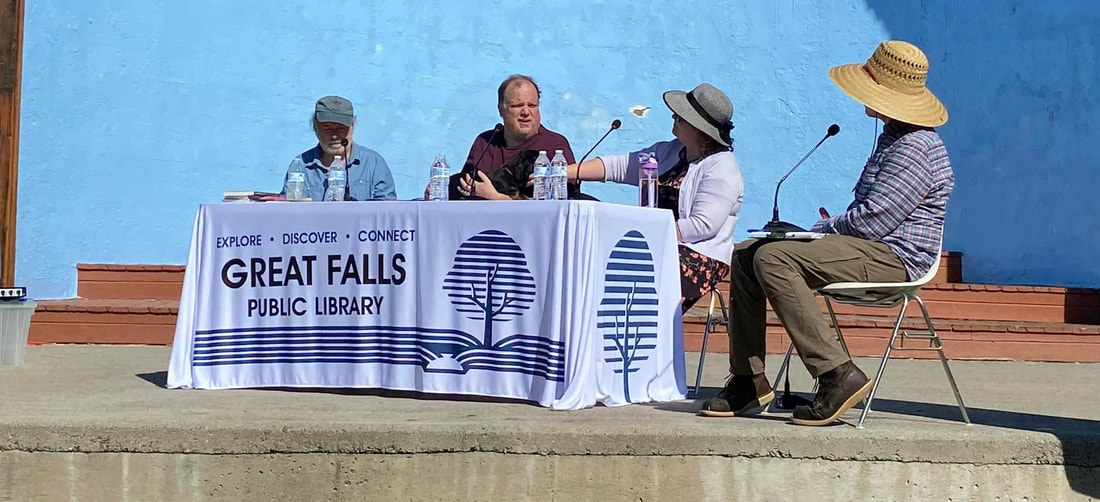
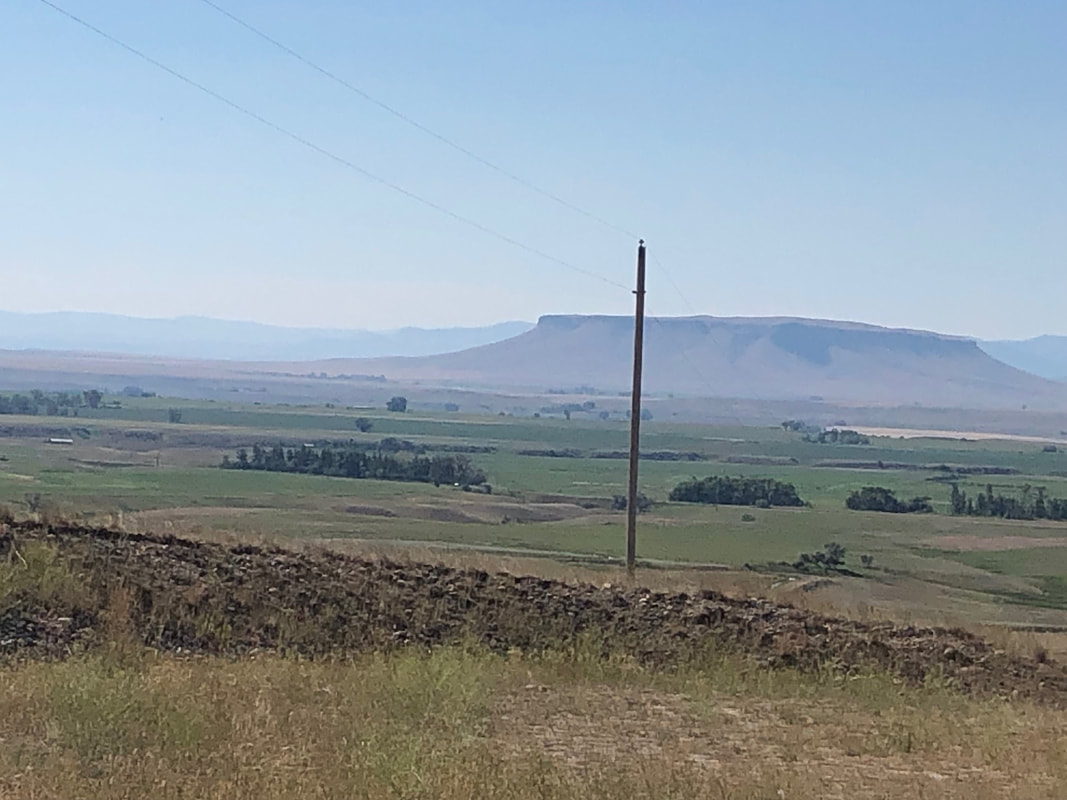
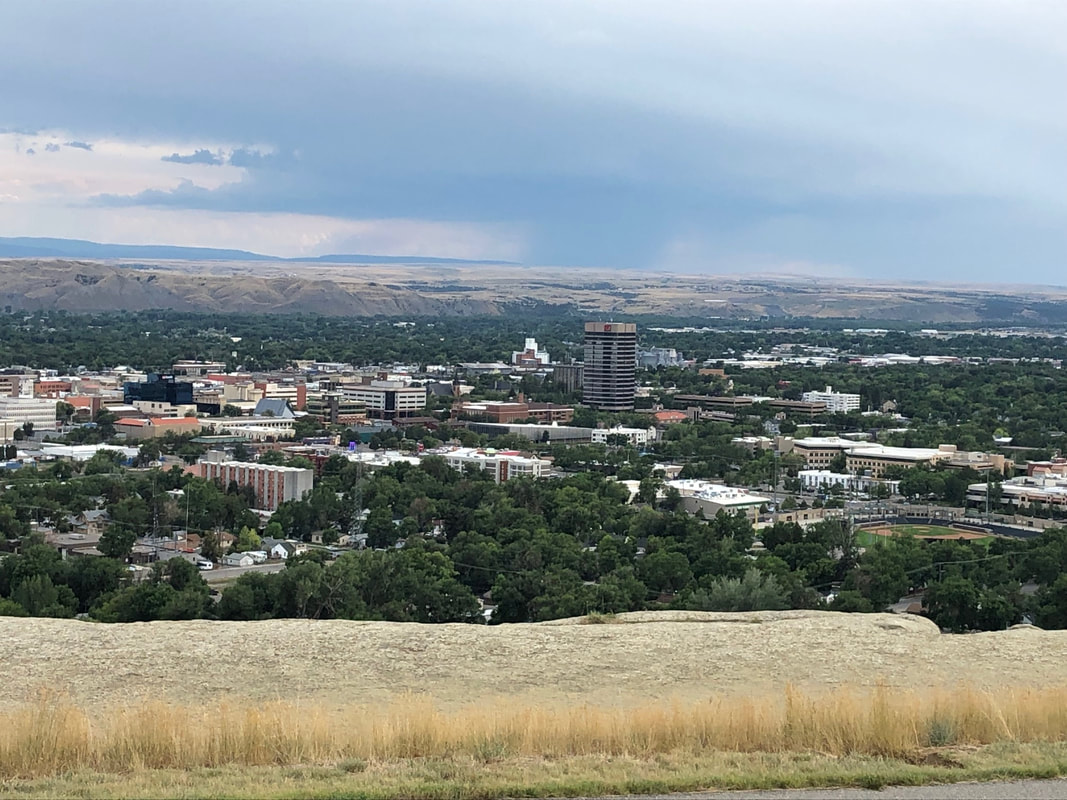
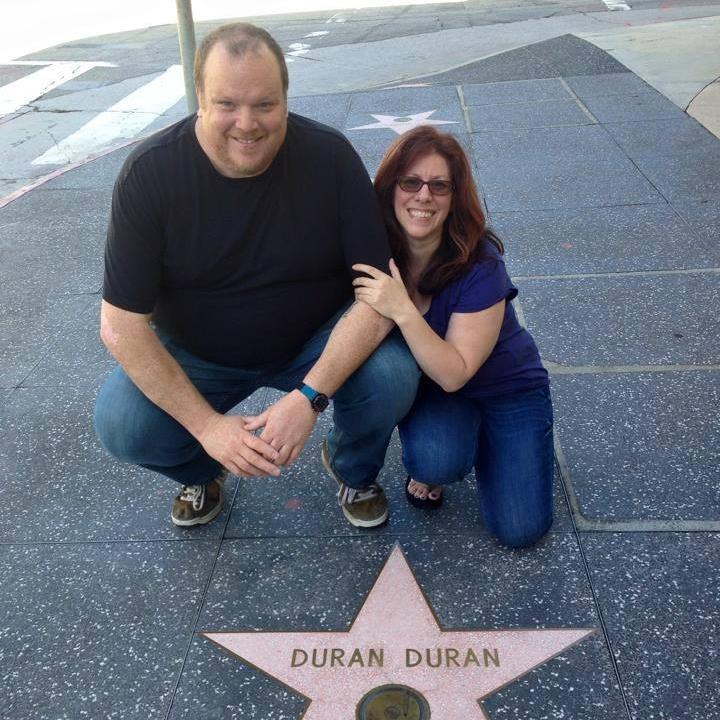
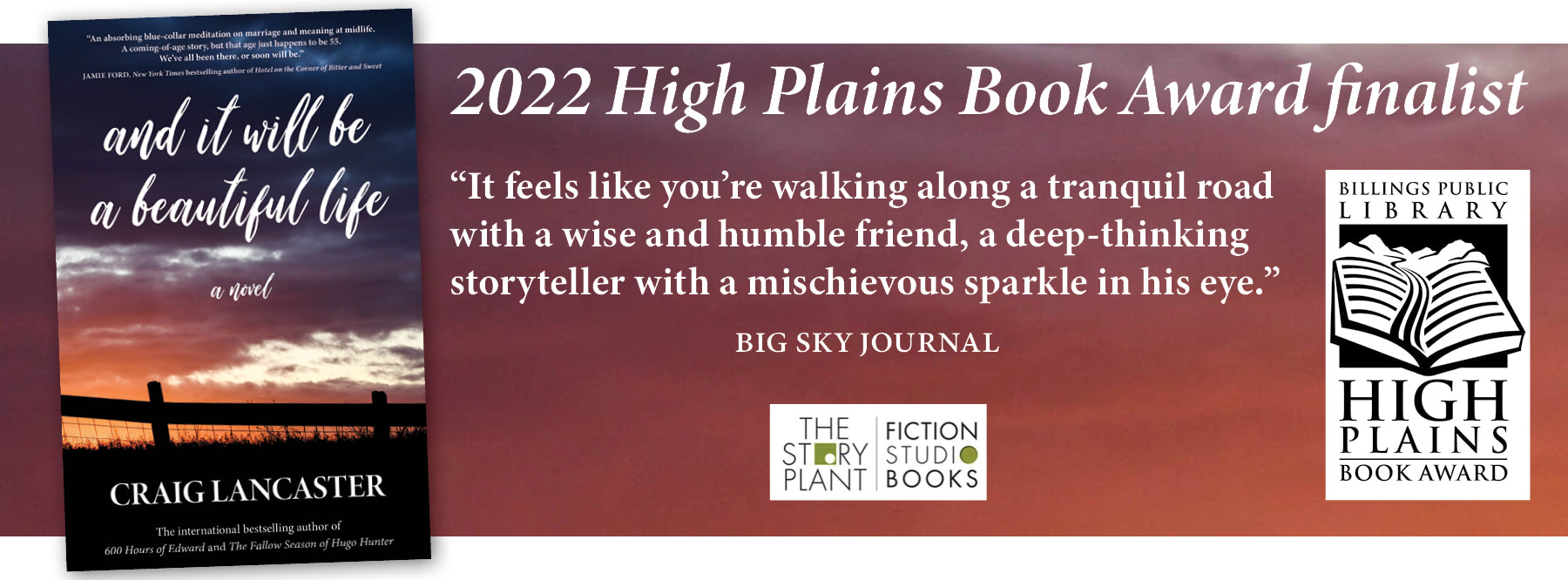
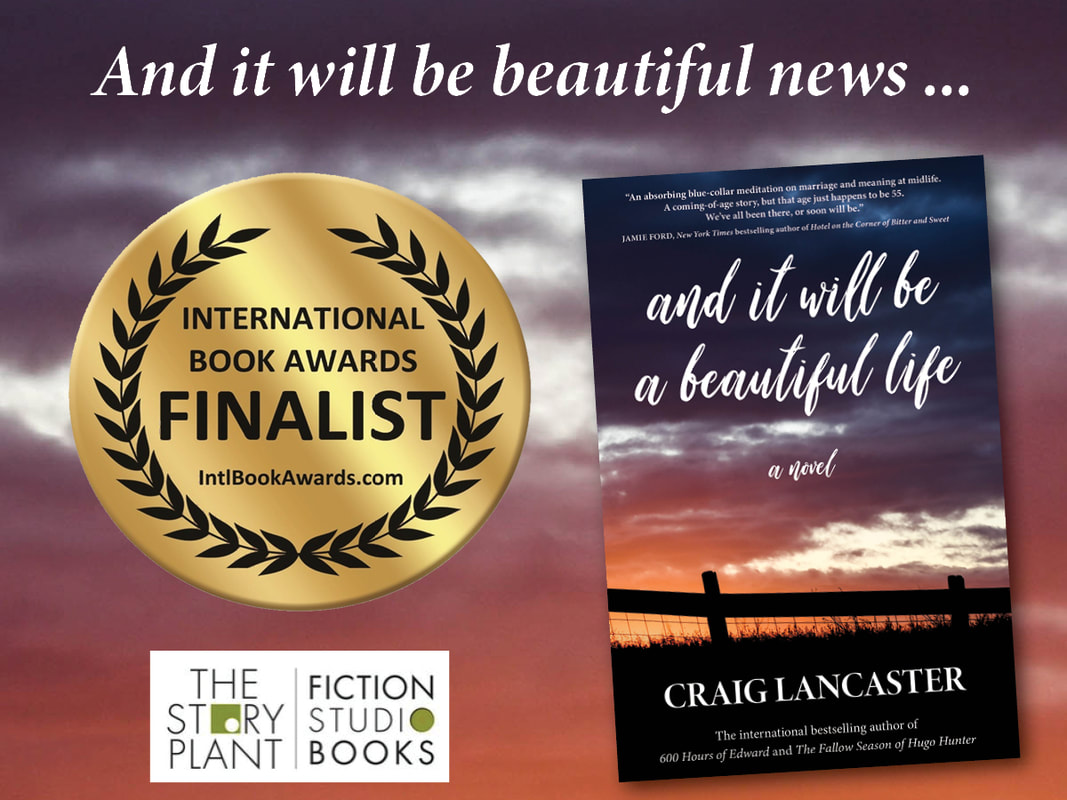
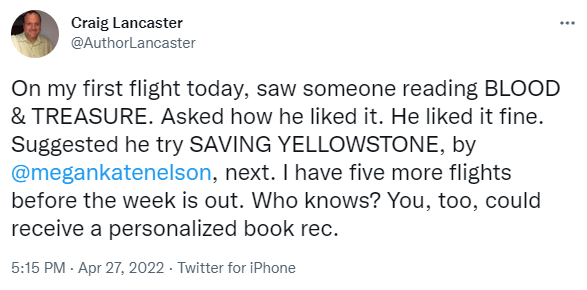
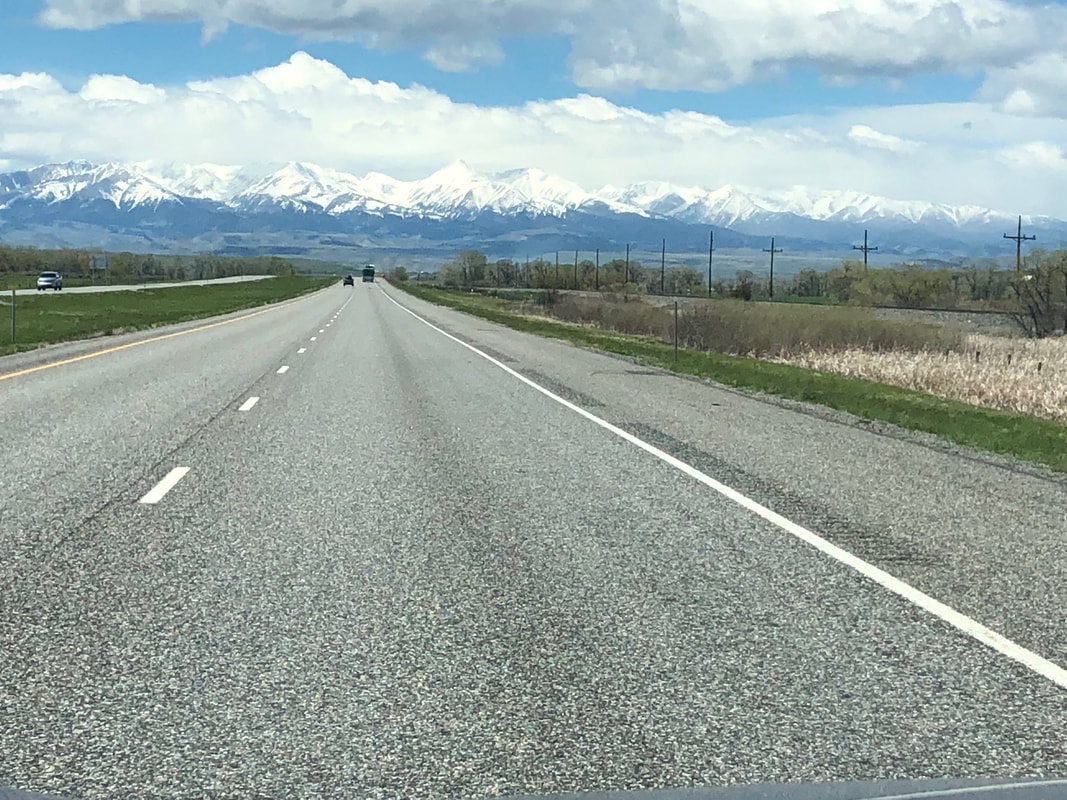
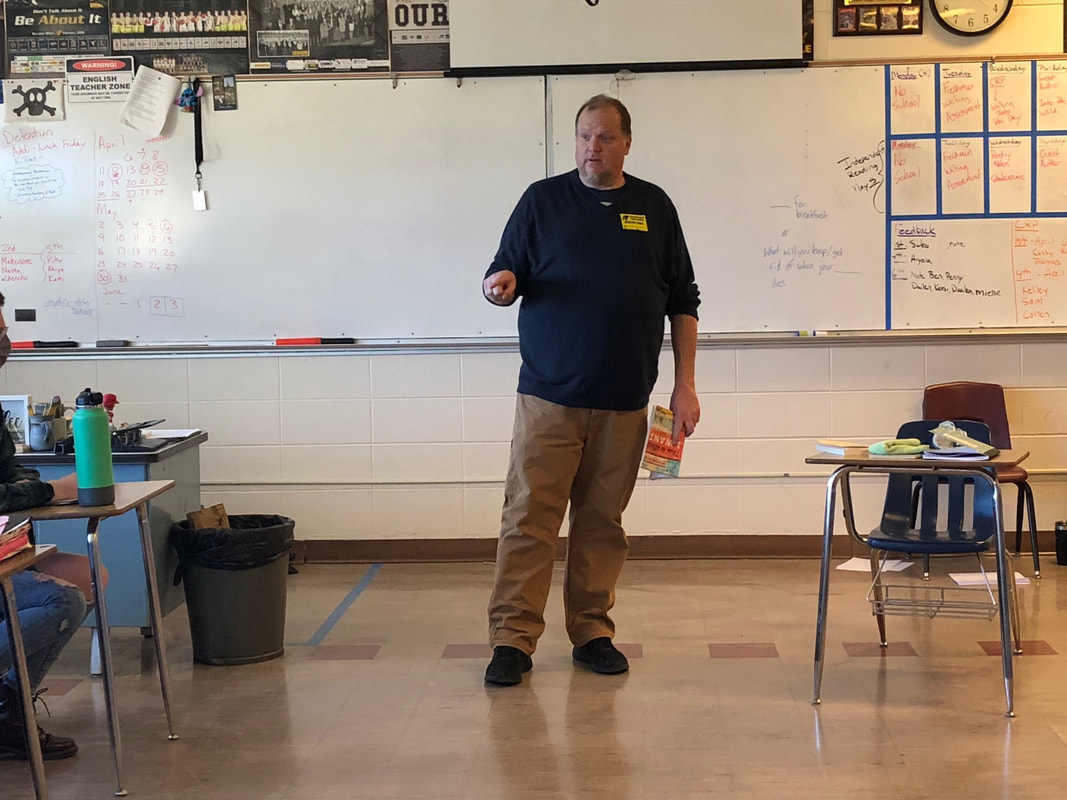
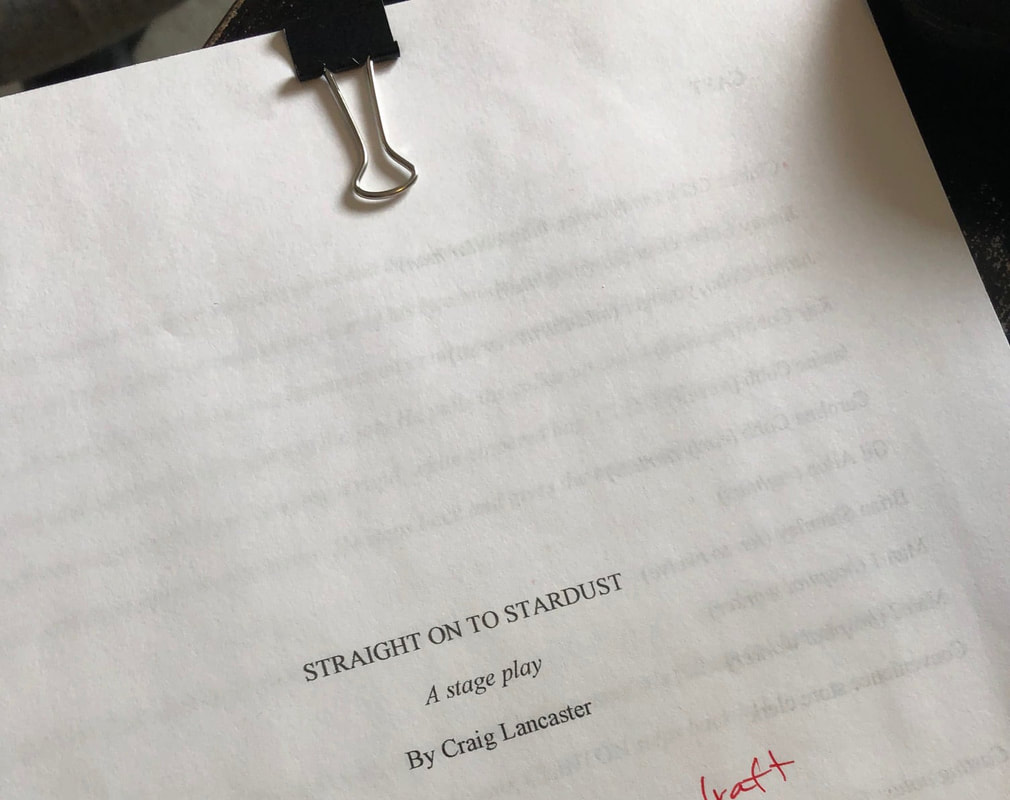

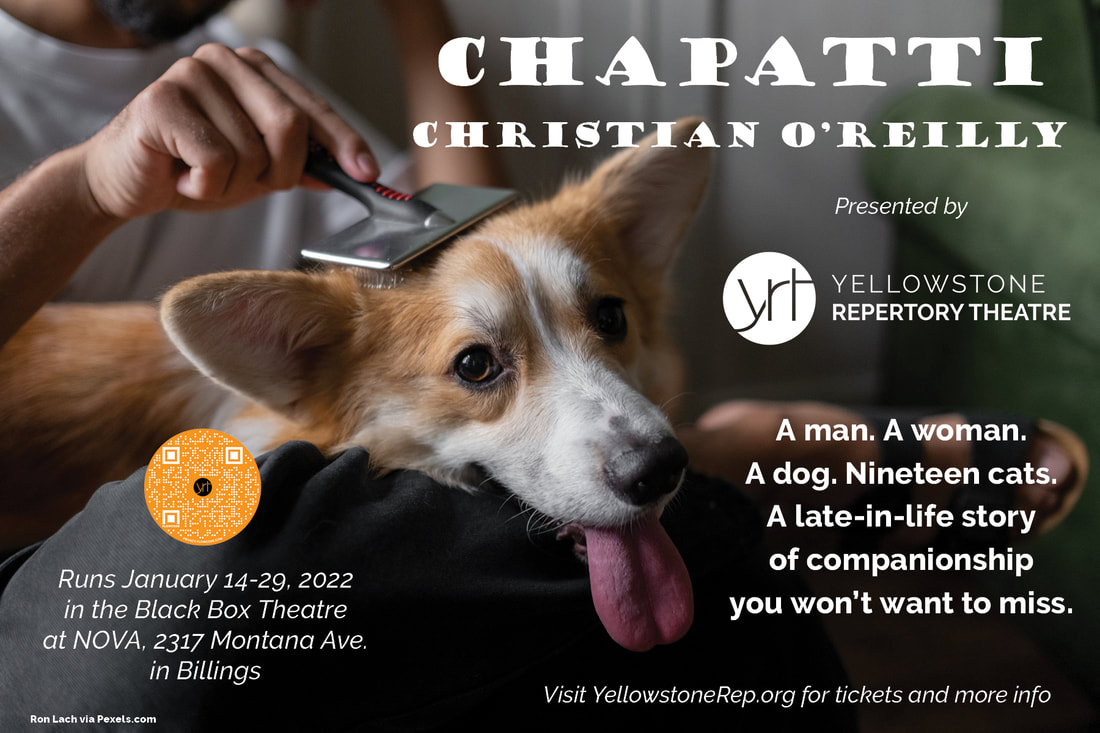
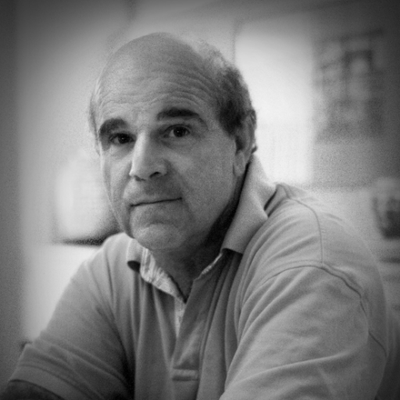
 RSS Feed
RSS Feed